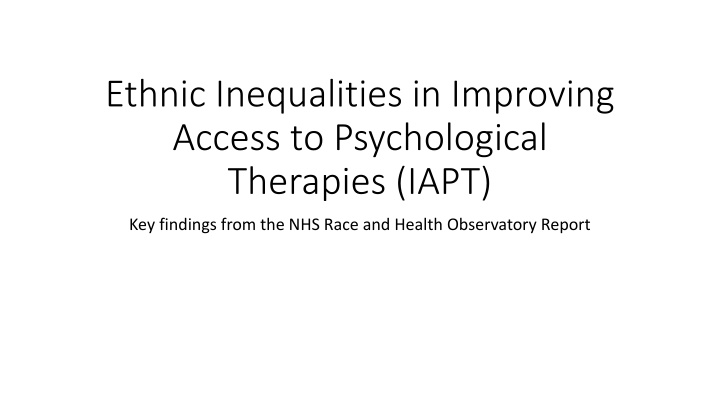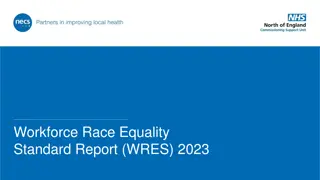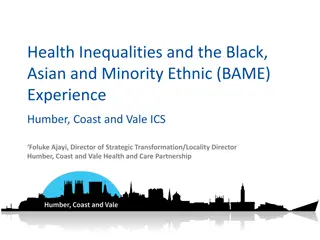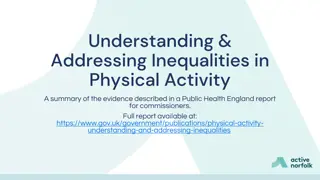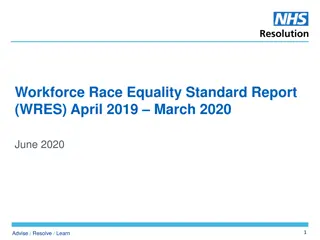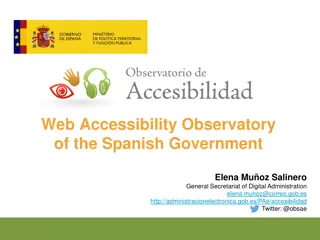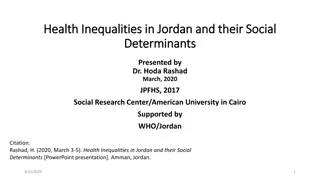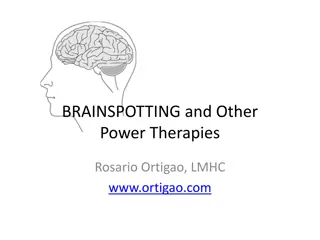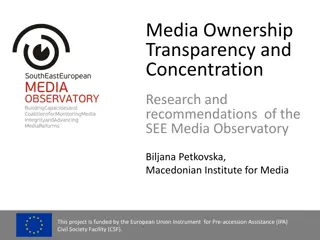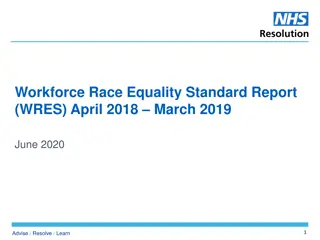Addressing Ethnic Inequalities in Access to Psychological Therapies: Insights from NHS Race and Health Observatory Report
NHS England's efforts to advance equality in healthcare services recognize the disparities faced by minoritised ethnic groups, particularly in accessing psychological therapies. Recent findings indicate that individuals from these groups experience worse outcomes, longer wait times for assessment and treatment, and lower likelihood of receiving appropriate care. Recommendations include implementing the Positive Practice Guide, community engagement, culturally sensitive care, and enhancing workforce training and recruitment to address these inequalities effectively.
Download Presentation

Please find below an Image/Link to download the presentation.
The content on the website is provided AS IS for your information and personal use only. It may not be sold, licensed, or shared on other websites without obtaining consent from the author.If you encounter any issues during the download, it is possible that the publisher has removed the file from their server.
You are allowed to download the files provided on this website for personal or commercial use, subject to the condition that they are used lawfully. All files are the property of their respective owners.
The content on the website is provided AS IS for your information and personal use only. It may not be sold, licensed, or shared on other websites without obtaining consent from the author.
E N D
Presentation Transcript
Ethnic Inequalities in Improving Access to Psychological Therapies (IAPT) Key findings from the NHS Race and Health Observatory Report
Previous research In their equalities strategy, NHS England acknowledges its duty to advance equalities in NHS services. This duty involves considering the needs of groups of people experiencing or at risk of inequalities, and working to find ways to reduce inequalities, such as providing culturally sensitive care. The strategy acknowledges that people from some minoritised ethnic groups have poorer recovery rates in talking therapy services (IAPT) than White British groups .
Key findings Used 10 years of data In comparison with White British people, with the exception of Chinese people, people from minoritised ethnic groups (including non-British White people): experienced worse outcomes, although this has narrowed in recent years waited longer for assessment were less likely to receive a course of treatment following assessment
Key findings Inequalities in outcome for people from minoritised ethnic groups are associated with: increased symptom severity at initial assessment living in areas with higher levels of deprivation, and higher unemployment waiting longer for assessment, waiting longer between treatment. The IAPT Black, Asian and Minority Ethnic Service User Positive Practice Guide (PPG), published in 2019 was well received by services, but: does not appear to be used consistently across services commissioners did not report good knowledge of the PPG s recommendations when compared with IAPT staff and leads.
Recommendations Influencing system leaders Implementing the positive practice guide Meeting the needs of PCREF through Community engagement Providing culturally sensitive care Advancing equality Workforce training and competence Workforce recruitment and retention
